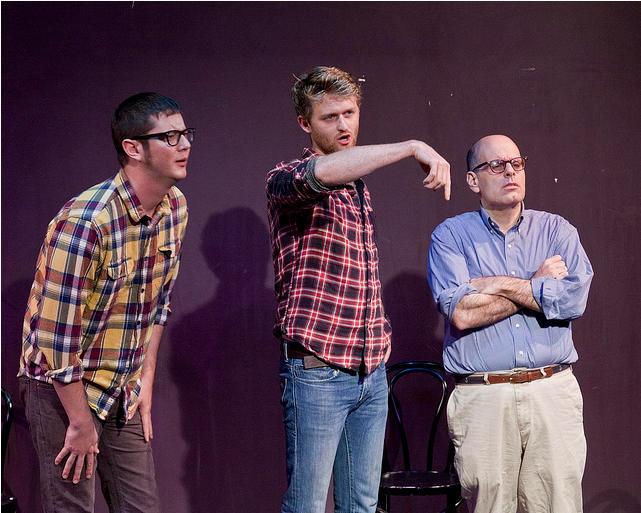6 Steps to forming a great improv group

Today more than ever, improvisers are striking out on their own and forming independent groups. Nothing makes me happier than this because this is the way people really grow in improv.
However, just because you can form your own team doesn’t mean it’s going to be a success. Creating a group that really works requires commitment, chemistry and lots of energy.
I was involved in indie improv groups way before they used that name, and the one I was most proud of was the critically acclaimed long-form group Jazz Freddy. Recently, someone asked me what made that long-form group so successful, and I thought I would share with you what I learned from my experience.
1. Start with a vision
A group that doesn’t have a clear vision is going to have trouble sticking together, because it won’t be long before people won’t agree on what direction to take. When you're picking improvisers to be part of your group, get like-minded people together and make sure they all buy into your vision.
With Jazz Freddy, Pete Gardner had a vision to do more patient, theatrical improv, and everyone who joined the group shared that vision. Though the show evolved and changed over time, as long-form shows do, the vision of the type and style of improv never did. When creative differences arose in the group, and they did, it was never about the vision. That was the one thing that was agreed upon from the outset.
2. Get good talent
When you’re forming an improv group, don’t pick your friends or your roommate just because you happen to hang out with them. Pick the very best people you can find, because there is no substitute for good talent. Without it, you have nothing, absolutely nothing. If you’re lucky enough to combine talent with commitment and a little vision, you have the opportunity to create something wonderful that will influence generations of improvisers.
3. Make the team your only focus
In Jazz Freddy, we made the show our #1 priority. We weren't distracted by running across town doing other improv shows and classes because Jazz Freddy was the only thing we were doing. The only thing. It's called singleness of purpose. We treated being part of Jazz Freddy like we had been cast in play at Steppenwolf. We rehearsed three or four times a week and we continued to rehearse once the show was up.
4. Make the hard decisions that are good for the group
I think one of the hardest and best decisions that we had to make as a group happened right before the second run of the show. A couple of cast members had been hired by Second City, and because of their schedules, they couldn’t make the rigorous time commitment to our rehearsals. So as a group, we decided they could not do the run, and with that decision, we were putting the good of the group ahead of the personalities.
5. Take ownership
When some improvisers join a group or a show, they say "I just want to show up and play." That may work for them, but if you are looking to create something lasting and worth doing, you need people who are willing to do more than that. Everyone on the team needs to help out in some way: putting up fliers, doing social media, booking the venue, etc.
In Jazz Freddy, it was understood that cast members would help out with the producing responsibilities, meaning we would hang posters, get people to donate to our fundraiser, and talk it up with family and friends to get butts in the seats.
6. Invest in yourself
I know you’ve been spending a ton of money on classes and workshops, but if you want your group to be successful, you’re going to have to spend a little money – on posters, rehearsal space, Facebook ads and most importantly, a director. With Jazz Freddy, nobody thought that we were "done" or "above" having a coach. We were willing to pay for it because we were making an investment in ourselves, and it turned out to be a huge benefit because we learned from the show, and half the cast eventually worked at Second City.


😆 I love the idea of in service to the group.
Great piece Jimmy.
Just one thing though. I really believe people can never start forming groups to play with too soon. When you are forming a group at the beginning of your training I think the points above are less important . As you are still figuring out who you are as a performer and what forms you want to do.
But for performers who are starting independent teams after a fair amount of training I agree with almost everything you say. Except even then i would not be quite so single focused and do others shows and classes at least occasionally
But those are just quibbles as always you hit the mark with most everything. Thanks Jimmy for putting this stuff down for others to learn form your experience..
As always, thank you for your insight.